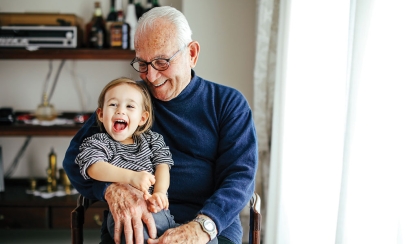
Ever Say 'You're Forgiven' Without Meaning It?
In March of 1901, Amy Carmichael sheltered a distraught runaway, the first of many abused children that she would encounter in her missionary work. How did Amy suggest that one respond to life’s hurts? “If I am content to heal a hurt slightly, saying ‘Peace, peace,’ where there is no peace; if I forget the poignant words, ‘Let love be without dissimulation,’ and blunt the edge of truth, speaking not right things but smooth things, then I know nothing of Calvary love.”
Peace, peace? It might be tempting to avoid further pain by healing a hurt slightly, backing away from issues that evoke heartbreaking memories. But unspoken hurts don’t simply fade away. Just as a physical wound may become infected if left unattended, emotional wounds fester in subtle ways. There may be a lingering feeling that the people who have caused pain should suffer, and if misfortune does befall them, then we gloat with satisfaction. This type of response shows the hurt is festering; healing is needed for the victim as well as the perpetrator. As the proverb says, “One who pursues revenge should dig two graves.”
Saying right things rather than smooth things. “Sorry. You forgive me, don’t you?” “Well, yeah.” Agreeing to forgive before we have confronted the pain of being hurt may seem like a loving response but, instead, it gives the illusion of a healed relationship. The right response may be, “I’m going to pray for the desire to forgive you,” or “It might take a while but I hope I will be able to forgive you.”
“Let love be without dissimulation.” (Romans 12:9) Throughout His life, Jesus’ responses to others were genuine; He neither feigned emotions nor cloaked His thoughts. When we love without pretense, then we confront our pain instead of repressing it. Courage is needed to love without dissembling because it runs counter to social norms that encourage smoothing over “delicate situations.” It may take more effort to heal a hurt rather than to hide it, but when healing does occur there is a freedom that lightens the heart.
Healing painful memories begins with the decision to confront the unspoken hurts that weigh heavily upon our hearts. When Jesus taught us to pray, He gave us the words, “ ... your kingdom come, your will be done, on earth as in heaven.” (Matthew 6:10). When we ask that God’s will be done in regard to our pain, we are inviting God to show us the path of inner healing: “You will show me the path to life, abounding joy in your presence, the delights at your right hand forever.” (Psalm 16:11)
Dr. Cathleen McGreal is a professor of Psychology at Hope College and a certified spiritual director.



